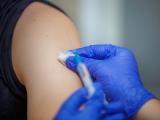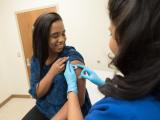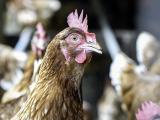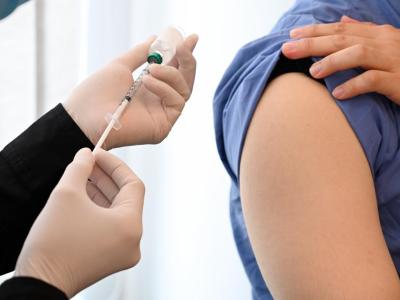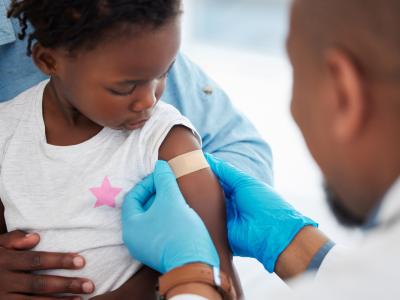Jul 27, 2011
NIH head says universal flu vaccine may be ready within 5 years
Dr. Francis Collins, director of the National Institutes of Health (NIH), says that a universal flu vaccine providing protection against all strains may be created within 5 years, according to a report in USA Today. Collins told the newspaper's editorial board that he is "guardedly optimistic" about the prospect of a shot that would provide long-term protection, replacing the annual shots now required. He said a universal flu vaccine seemed completely out of reach a few years ago, but scientists now know there are part of the virus's coat that don't change, and a vaccine targeting "the constant part of the virus" could protect against all strains. Dr. Arnold Monto, a flu expert at the University of Michigan, said a universal flu vaccine "is not a question of whether, but when," according to the story. But he added, "I think five years is a bit ambitious, given where we are now." Many research teams are currently working to create broadly protective flu vaccines. Collins talked about flu vaccines in a discussion of many advances stemming from NIH research, against the backdrop of a congressional budget debate that could lead to trimming the NIH's $31 billion budget.
Jul 26 USA Today story
Compressed schedules for adjuvanted H5N1 vaccine do well in trial
Accelerated vaccination schedules for an adjuvanted H5N1 avian influenza vaccine provided a good immune response, which could make immunization a more flexible tool for preparing for or responding to an influenza pandemic, according to a report in the Aug 15 issue of Journal of Infectious Diseases. The study used GlaxoSmithKline's inactivated split-virus recombinant vaccine containing 15 micrograms of antigen from an Indonesian H5N1 strain from 2005 and the AS03 oil-in-water adjuvant. It involved 304 adults ages 18 to 64 who were randomly assigned to four different groups that received two doses of the vaccine at the standard 21-day interval or at 14-, 7-, or same-day intervals. Though antibody titers were highest with the standard schedule, titers in the three other groups met US and European Union immunogenicity criteria. The authors also tested subjects' immune response to drifted H5N1 strains, including A/Vietnam/1194/2004 and A/turkey/Turkey/1/2005, and found that the response was robust and met criteria in many instances. The group said the positive findings for the compressed vaccine schedules, using a dose-sparing approach, suggest that health authorities could consider using compressed dosing schedules in emergencies. The study was funded by the Public Health Agency of Canada and GlaxoSmithKline, and four of the authors are employees of the company.
Aug 15 J Infect Dis abstract
